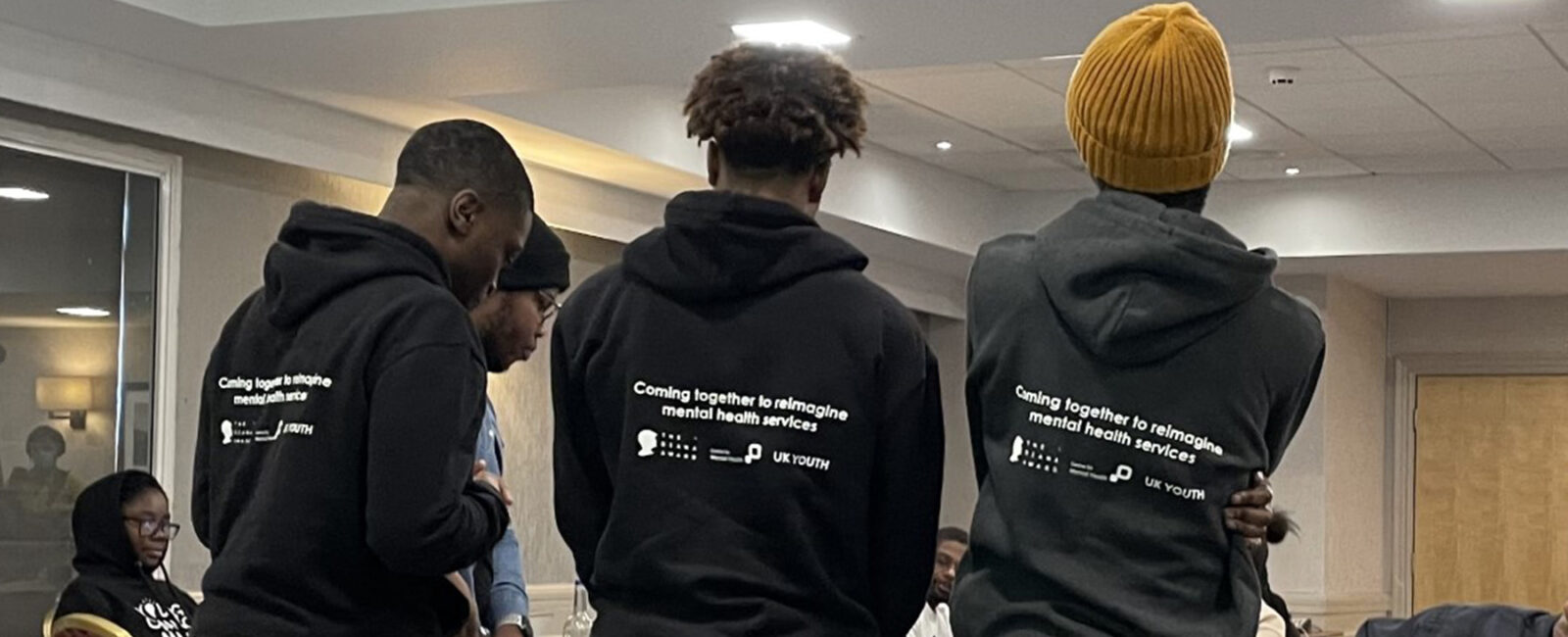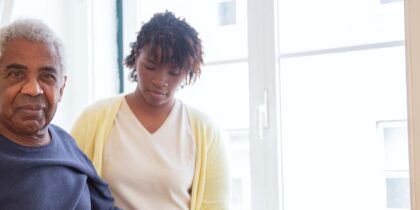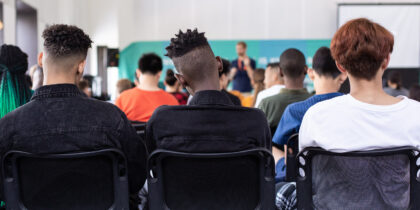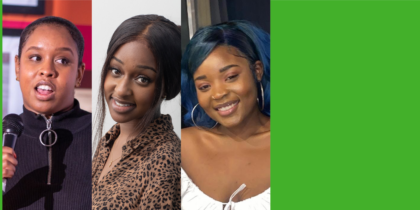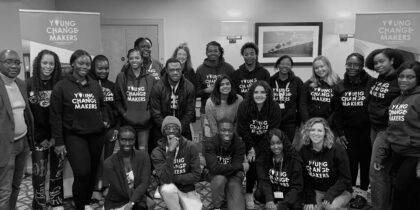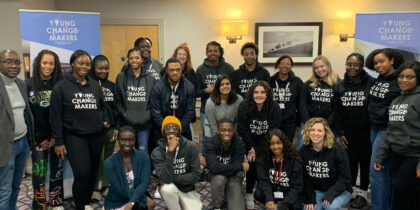Young Changemakers is a programme created by Centre for Mental Health, UK Youth and The Diana Award to equip young people with the tools to produce youth-led social action projects aimed at tackling mental health inequalities in racialised communities.
Mental health among young people from racialised communities
The evidence is clear that young people from racialised communities face inequalities in their experiences and outcomes within mental health:
- Young people from racialised groups are disproportionately exposed to many known risk factors linked with mental health problems. These include being excluded from school, being in care, being involved in the criminal justice system, and being homeless (Youth Justice Board, 2019; Day et al., 2020).
- Black people are four times more likely to be detained under the Mental Health Act than white people (NHS Digital, 2021b)
- Young people from racialised communities reported feeling less recognised and understood when talking to their GP about their mental health needs compared to their white counterparts (Annual GP Satisfaction Survey, 2021)
- Children from racialised communities are less likely than their white peers to access traditional mental health services (Education Policy Institute, 2017). However, they are twice as likely to access mental health support via court orders (social care or criminal justice related orders) (Edbrooke-Childs and Patalay, 2019)
- Young people from racialised communities have seen their mental wellbeing hit disproportionately hard by the Covid-19 pandemic (Abdinasir, 2021).
Read more about this in our Young Changemakers briefing, ‘A voice for change’
About the Young Changemakers programme
With a vision to promote equality in mental health, and to create culturally competent mental health services that speak to the needs of young people from racialised communities, Centre for Mental Health has partnered with UK Youth and The Diana Award to create the Young Changemakers programme. This is a three-year programme funded by players of the People’s Postcode Lottery and Comic Relief to support mental health in young people from racialised communities.
Starting in autumn 2021, the first cohort of the programme consisted of 15 Young Changemakers and 8 co-producers, all of whom are between 18-25 years old, and from racialised communities with lived experience of mental health issues and injustices.
To address some of the mental health inequalities facing young people from racialised communities, the Young Changemakers programme has developed four social action strands: policy influencing, engaging frontline practitioners, changing public attitudes, and peer-to-peer support. These focuses inspired the development of four projects led by the first cohort of Changemakers, which are:
- Team Not So Micro – Campaigning to include microaggression training as a mandatory part of teacher training
- Team Engage – Creating culturally sensitive digital resources for GPs
- Team Verity – Producing a podcast featuring mental health professionals and young people with lived experience
- Team Change – Delivering creative workshops about mental health specifically targeting young Black people.
The second cohort of Changemakers have developed the following social action projects:
- Integrate UK (1) – The groups hosted an all-day event with young people from schools in their area and their teachers to raise awareness of mental health among Black and racialised communities, and to discuss some of the causes behind this. They had a number of specialist and expert speakers with interactive workshops as well as providing a platform to young people themselves to talk about their challenges in an open forum. 35 young people attended.
- Integrate UK (2) – The group created and published a three-part podcast series that hosted conversations with experts in supporting Black and racialised communities struggling with mental health. These episodes looked at personal examples and stories, as well as what services are/aren’t doing to help. The focus of these episodes was to look at the issue from an intersectional lens and to give young people a chance to have their voices heard on the subject. The episodes were posted on Integrate UK’s YouTube channel and have so far had over 250 views in the last 2 months. This group was successful in their application to join the Accelerator pathway and as a partnership we will support them over the next 6 months to continue developing their project and further increase their impact.
- Getaway Girls – This group held an awareness event offering peer to peer support at a local hair salon, a safe space for young women in the community to meet and talk. The salon offered to braid hair in different styles whilst the group spoke about mental health, why it is important to talk about our mental health, how to access support, local services and signposting. The group also created a takeaway resources ‘goodie bag’ for all attendees. This goes alongside their Sisterhood Salon campaign on social media – a space for young Black women to explore issues around identity, relationships and mental health all expressed through our hair.
- CEF Lyncx – This project began with a presentation to the leadership team, members of the youth club and local police officers. The group spoke passionately about their personal experience of growing up on an estate and the impact of the lack of facilities on their mental health. They are now putting their campaign into action with a petition to gain community support to improve access to outdoor and sporting facilities.
- Ameina Centre – This group have chosen a health campaign to focus on raising awareness and discussing the various issues and stigma surrounding mental health in the black community. By creating a TikTok account and sharing informational slides and videos, the group want to bring to light these matters and let young people know the resources available to them. They then want to record and release longer episodes centred around different topics – ‘What exactly is mental health?’, ‘How is mental health perceived in our community?’ and ‘How can we deal with this?’ The latter will focus on intergenerational perspectives and deconstructing the negative stigma.
As independent evaluator of the programme, the Centre uses a peer research model to lead the research phase, arm-in-arm with Young Changemakers from racialised communities.
“Racism is toxic to mental health. Our research working with young people has highlighted the impact of racial injustice on their mental health and how this gets reinforced in their experiences of mental health support… This is an excellent opportunity for racialised young people to be at the heart of research and evaluation to get a more accurate picture of their experiences. Their voices have been missing from the debate. We have a lot to learn, and we hope it will drive real and lasting social and system change”
Sarah Hughes, former chief executive, Centre for Mental Health
“I joined the Young Changemakers programme because I’m passionate about improvements to mental health, and I believe that, when given a platform, anyone can be capable of bringing about change. The work everyone has been doing has been inspiring, and will help improve mental health services for the next generation, and I believe this briefing reflects that” – Ashleigh Onabajo, Young Changemaker
“I’m honoured to have worked with such an amazing group of people. Partaking in research with like-minded people, alongside the guidance from Centre for Mental Health was something I greatly enjoyed.” – Pleasant Adesiyan, Young Changemaker

